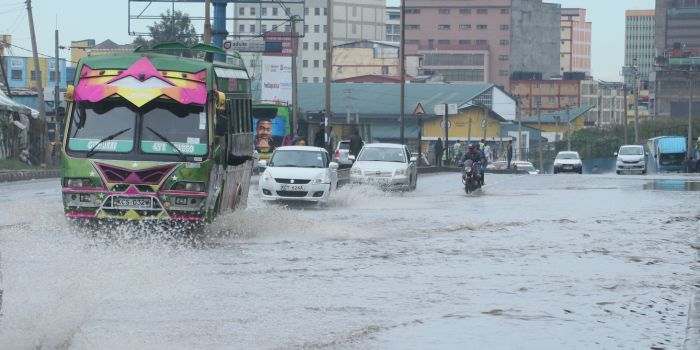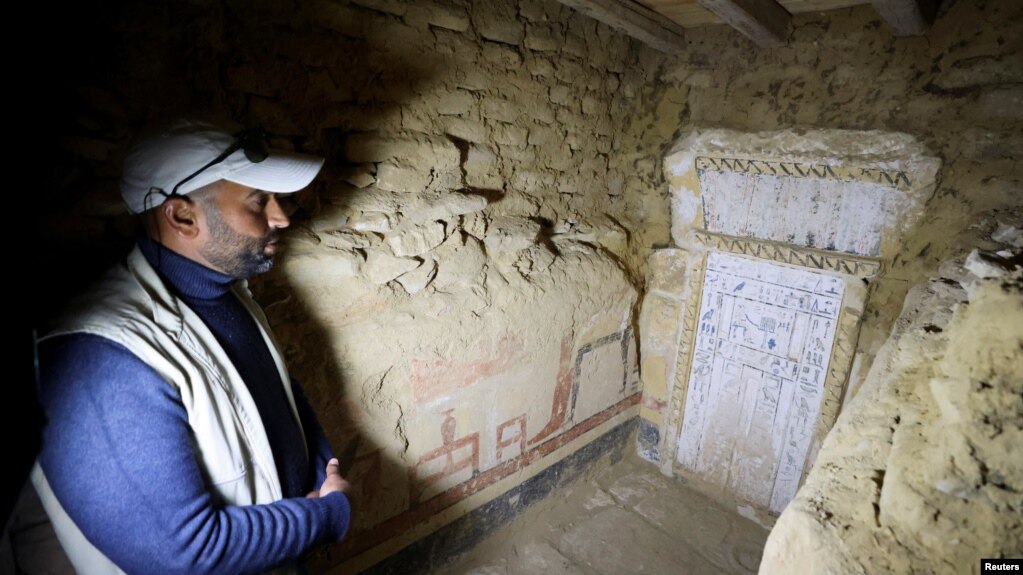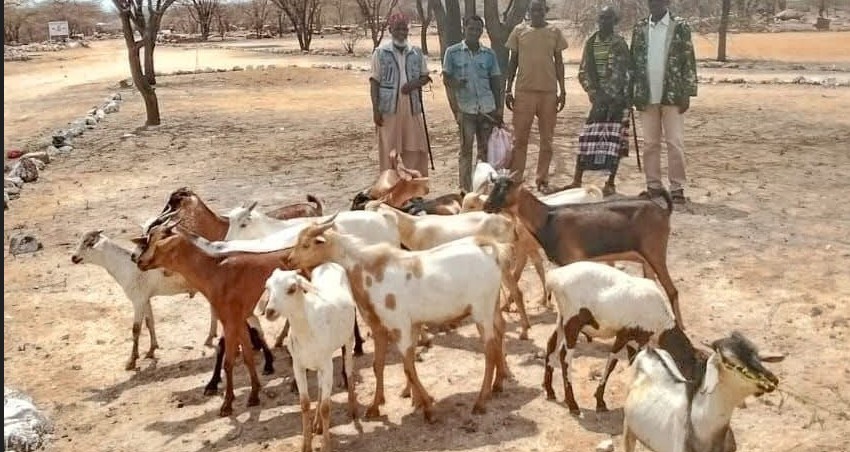Kenyans advised to brace for heavy rainfall in next five days

Kenyans across various regions continue to face the aftermath of intense rainfall, leading to flooding in several parts of the country.
The Kenya Meteorological Department has issued a weather alert, predicting heavy rainfall across various country regions over the next five days.
Heavy rainfall is expected in key areas including the Lake Victoria Basin, the Highlands West and East of the Rift Valley, Nairobi, and parts of the Rift Valley.
More To Read
- Heavy rains disrupt Nairobi traffic as Kenya Met warns of more downpours
- Intense rainfall expected across Kenya from Friday to Sunday
- Isolated heavy showers expected in Rift Valley, Lake Victoria basin - Kenya Met
- Kenya to experience rains, thunderstorms, strong winds this week
- Dry and sunny conditions expected in most parts of Kenya this week
- Nairobi to experience cloudy skies as Coast, Rift Valley brace for rains - Kenya Met
Heavy downpours accompanied by thunderstorms, particularly in the afternoon hours are expected in Nairobi, Nyandarua, Laikipia, Nyeri, Kirinyaga, Murang'a, Kiambu, Meru, Embu, Tharaka, Siaya, Kisumu, Homa Bay, Migori, Kisii, Nyamira, Trans Nzoia, Baringo, Uasin Gishu, Elgeyo-Marakwet, Nandi, Nakuru, Narok, Kericho, Bomet, Kakamega, Vihiga, Bungoma, Busia, and West Pokot.
Moderate rainfall is expected in coastal regions and the southeastern lowlands counties like Kitui, Makueni, Machakos, Kajiado, and Taita Taveta.
Conversely, Turkana and Samburu counties in the northwest are anticipated to experience predominantly sunny conditions throughout the week.
Kenyans across various regions continue to face the aftermath of intense rainfall, leading to flooding in several parts of the country. Counties like Tana River are particularly affected, dealing with outbreaks of cholera. Reports indicate that Tana River County alone has recorded approximately 53 cases of cholera.
The Ministry of Health last week issued a warning concerning potential health hazards in schools during periods of heavy rainfall.
Addressing school administrators and management boards on May 18, Principal Secretary Mary Muthoni noted the potential impacts of floods on students' health and education quality.
"Schools are particularly vulnerable to water-related diseases due to exposure to contaminated water, leading to outbreaks of infectious diseases within school communities," the statement noted.
She highlighted the risk of waterborne and vector-borne diseases during flooding.
"Protecting drinking water facilities and eliminating stagnant water, which serves as breeding grounds for mosquitoes, are critical steps," said Muthoni
To promote hygiene and safe food practices, PS Muthoni recommended treating water used for drinking, cooking, and personal hygiene with chlorine or boiling it.
Students were urged to wash their hands thoroughly after any contact with floodwater, refrain from swimming in floodwaters, and avoid walking through standing water due to potential hazards like fallen electrical lines.
Students in mosquito-prone areas were advised to wear protective clothing and use mosquito nets while ensuring functional toilets and maintaining cleanliness within school compounds were highlighted as crucial measures to prevent disease outbreaks.
Top Stories Today















































